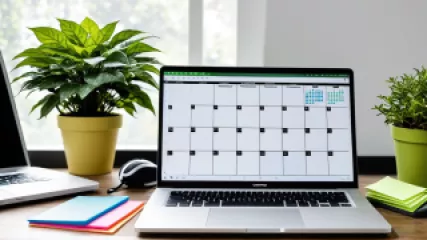Mastering Productivity: A Step-by-Step Guide to Overcoming Procrastination with Online Support
Introduction
Procrastination is a common struggle that many people face when it comes to being productive. It can be challenging to overcome the temptation of delaying tasks and falling into the trap of wasting time. However, with the advent of technology and the rise of online support systems, there are now effective ways to combat procrastination and boost productivity. In this step-by-step guide, we will explore various strategies and tools that can help you overcome procrastination with the assistance of online support. Whether you're a student, professional, or someone seeking personal growth, this guide will provide you with the necessary resources to master productivity and conquer procrastination.
Step 1: Understanding Procrastination
Before diving into the techniques and tools for overcoming procrastination, it's essential to understand what procrastination is and why it occurs. Procrastination is the act of delaying or postponing tasks unnecessarily. This behavior often stems from factors such as fear of failure, lack of motivation, perfectionism, or feeling overwhelmed by the task at hand.
To effectively overcome procrastination, it's crucial to identify the root causes that trigger this behavior in your life. Reflect on your own patterns of procrastination and take note of the situations or tasks that tend to lead to delays. By understanding the underlying reasons behind your procrastination, you can better address them and develop strategies to counteract them.
Step 2: Setting Clear Goals
One of the most effective ways to combat procrastination is by setting clear and specific goals. When you have a clear vision of what you want to achieve, it becomes easier to stay focused and motivated. Start by breaking down larger goals into smaller, manageable tasks. This not only makes them less overwhelming but also allows you to track your progress more effectively.
Utilize online tools, such as productivity apps or project management software, to help you structure and organize your goals. These tools often provide features like task lists, reminders, and progress tracking, which can keep you accountable and on track.
Step 3: Creating a Productive Environment
Your environment plays a significant role in influencing your productivity levels. To minimize distractions and create an atmosphere conducive to work, consider implementing the following strategies:
- Designate a dedicated workspace: Set up a specific area in your home or office where you can focus solely on your tasks. Ensure that this space is free from potential distractions and has all the necessary resources within reach.
- Eliminate digital distractions: Use website blockers or browser extensions to limit access to distracting websites or social media platforms during designated work periods.
- Manage your physical surroundings: Keep your workspace clean, organized, and free from clutter. A tidy environment can contribute to a clear and focused mind.
Step 4: Prioritizing Tasks
When faced with multiple tasks and deadlines, it's crucial to prioritize effectively. Prioritization helps ensure that you allocate your time and energy to the most important and urgent tasks first. Here are some tips for effective task prioritization:
- Use the Eisenhower Matrix: This matrix categorizes tasks into four quadrants based on their urgency and importance. Prioritize tasks based on these factors to maximize your productivity.
- Consider your energy levels: Schedule demanding or challenging tasks during times when you have the most energy and focus. Tackle less demanding tasks during periods of lower energy.
- Break tasks into smaller steps: If a task feels overwhelming, break it down into smaller, more manageable subtasks. This can help reduce procrastination caused by feeling overwhelmed.
Step 5: Utilizing Online Productivity Tools
The digital age has brought forth an abundance of online tools designed to enhance productivity and combat procrastination. Incorporating these tools into your daily routine can significantly improve your efficiency and focus. Here are some popular online productivity tools:
- Task management apps: Apps like Todoist, Trello, or Asana help you organize and track your tasks, set deadlines, and collaborate with others.
- Focus apps: Tools such as Forest or Focus@Will use techniques like the Pomodoro Technique or ambient music to help you stay focused and minimize distractions.
- Note-taking apps: Applications like Evernote or OneNote allow you to capture ideas, create to-do lists, and organize information efficiently.
- Time-tracking apps: Track how you spend your time using apps like RescueTime or Toggl. These tools provide insights into your productivity patterns and help you identify areas for improvement.
Step 6: Seeking Online Procrastination Support
While individual strategies and tools can be powerful, sometimes additional support is necessary to overcome deep-rooted procrastination habits. Online procrastination counseling, recovery programs, coaching, and support communities have emerged as valuable resources for individuals seeking guidance and accountability.
Procrastination counseling online provides professional guidance tailored to your specific needs. Counselors can help you uncover the underlying causes of your procrastination, develop personalized strategies, and provide ongoing support to overcome challenges.
Recovery programs and support communities offer a space to connect with individuals who share similar struggles. These platforms provide a sense of community, encouragement, and accountability. Participating in online support groups or forums can be an excellent way to share experiences, learn from others, and stay motivated on your journey to overcome procrastination.
Conclusion
Overcoming procrastination requires self-awareness, commitment, and the utilization of effective strategies and tools. By following this step-by-step guide, you can develop a comprehensive approach to conquer procrastination and enhance your productivity. Remember that change takes time, and setbacks are a normal part of the process. Stay patient, seek support when needed, and celebrate your progress along the way. With online resources at your disposal, you have the opportunity to master productivity and lead a more fulfilling and accomplished life.






